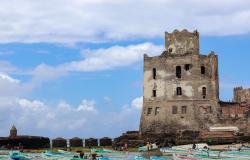
The purpose of this article is to analyse the relationship between Qatar's foreign policy and foreign aid in the Horn of Africa (HoA), with a particular focus on Somalia. Since the 2017 blockade, the HoA has become increasingly important to Qatar's foreign policy and aid efforts, intensifying political and economic competition with other Gulf players. This research describes Qatar's foreign policy strategies and tools in the HoA from 2011 to 2021, observing the evolution of humanitarian aid interventions in Somalia and the impact of Gulf competition in the country. The research aims to combine neoclassical realism with small-state theory in the analysis of foreign aid, examining Qatari foreign aid interventions in Somalia as a foreign policy tool for exercising autonomy and as an outcome of the Qatari elites' decision-making process.
Policy Implications
- Due to the high level of politicisation of aid in Somalia and the high competition for resources—between internal and external actors—donors should try to allocate aid more in line with the beneficiaries' needs than their political interests, especially in contexts affected by food insecurity, cyclic droughts and humanitarian risks.
- The competition among regional actors risks compromising aid effectiveness and affects stabilisation during a state-building process.
- The regional and extra-regional policymakers should consider the asymmetric interdependence between ME and HoA states when formulating and implementing regional policies. The Somali case shows that political stages in the Middle East can affect the Horn of Africa's stability. Periods marked by high competition (e.g., 2017–21) heighten instability in the Horn. Conversely, stages characterised by cooperation (2022 to date) foster a more cooperative attitude with and among the HOA countries.
- Looking at the aid policies from the small states' perspectives, the case of Qatar demonstrates that despite its smallness, in terms of traditional size-based indicators, the Sheikhdom can exploit aid to pursue national interests and exert its autonomy from the other Gulf States.
Photo by Yahye Somali